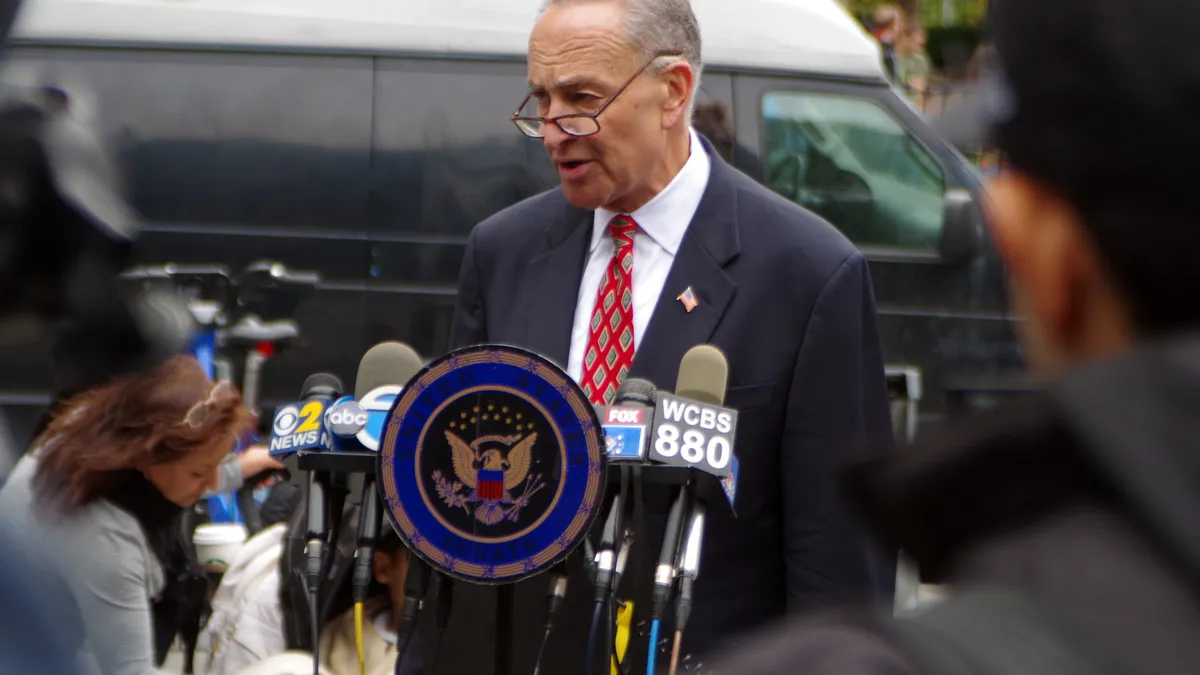Dive Brief:
- The Trump administration is sitting on almost $14 billion in funds benchmarked for COVID-19 testing and contact tracing, two top Democratic senators allege, as the average number of daily cases climbs across nearly half the country.
- Senate Minority Leader Chuck Schumer, D-N.Y., and Sen. Patty Murray, D-Wash., said that despite the spike, HHS has not dispersed more than $8 billion of the $25 billion Congress allocated for testing and contact tracing, and the Centers for Disease Control and Prevention hasn't awarded almost $4 billion in funding for public health surveillance efforts. Just a fraction of the $2 billion Congress set aside to cover testing for uninsured Americans has been spent, the senators wrote in a Sunday letter to HHS Secretary Alex Azar exhorting him to immediately disburse the remainder of the funds.
- Michael Caputo, HHS' public affairs assistant secretary, did not refute the figures in a statement to Healthcare Dive but said the agency is committed to getting funds to those that need them most as quickly as possible.
Dive Insight:
The letter comes a day after President Donald Trump said at a rally in Tulsa, Oklahoma, he directed officials to slow down testing to keep case numbers low, following months of downplaying coronavirus concerns.
White House officials defended the president's words as "tongue-in-cheek."
But roughly five months into the national emergency, lawmakers and public health officials are still urging the administration to improve its pandemic response, including using congressional funds to improve contact tracing, ensure inexpensive access to testing and address racial and ethnic disparities in care.
The Families First Coronavirus Response Act, which designated $1 billion for testing for the uninsured, was passed March 18, while the Paycheck Protection Program and Health Care Enhancement Act, which designated $25 billion for testing and contact tracing and another $1 billion for testing for the uninsured, was passed April 24.
HHS defended its timeline and said it has distributed $14 billion of the $25 billion pot of funds. Of that, $11 billion went to states and other localities but agency hasn't said how it plans to spend $8 billion of the funding that Congress didn't include specific directions for in the legislative text.
Caputo threw blame back onto lawmakers. "A divided Congress failed to give the agency clear direction in law for how to spend the money," he wrote.
But only about $31.6 million, or 1.6%, of the $2 billion Congress allocated for testing for uninsured Americans has actually gone out the door, according to a Healthcare Dive analysis of government data updated June 18. That's slightly higher than the figures cited in the Senate Democrats' letter pulled earlier in the month.
The system is dependent on providers submitting claims, so there could be significant backlog, but given rampant unemployment throwing millions of Americans off insurance, reimbursing providers for testing the uninsured is imperative, experts say.
The Democratic lawmakers also said the administration is not doing enough to address disparities in health access and outcomes exacerbated by COVID-19. Despite evidence the virus disproportionately impacts Black and non-white Americans, the federal government is only requiring labs to submit demographic testing data, including a patient's race and ethnicity, starting in August.
At his Tulsa rally, Trump claimed the U.S. has now tested some 25 million people — more than halfway to the White House's goal of 50 million by September.
The president has repeatedly chalked up rising COVID-19 cases in states like Texas, Florida, Arizona, South Carolina, Louisiana and Oklahoma to increased testing alone, not organic spread of the virus that has infected 2.28 million people in the U.S. and killed almost 120,000 as of Monday.
But the federal government has spent very little on contact tracing to tamp down on virus transmission, resulting in piecemeal infrastructure on a region-by-region basis. A group of public health organizations estimates the government needs $7.6 billion to scale up contact tracing, including almost $5 billion to hire and train at least 100,000 contact tracers. Other estimates ring in much higher.
Silicon Valley giants Apple and Google collaborated on Bluetooth-based tracking technology to aid contact tracing, released in May. But consumer, state and public health agency buy-in has been tepid so far, and the technology is plagued with concerns around privacy. Most contact tracing apps don't have sufficient security protections, according to a recent report from mobile security firm Guardsquare.














